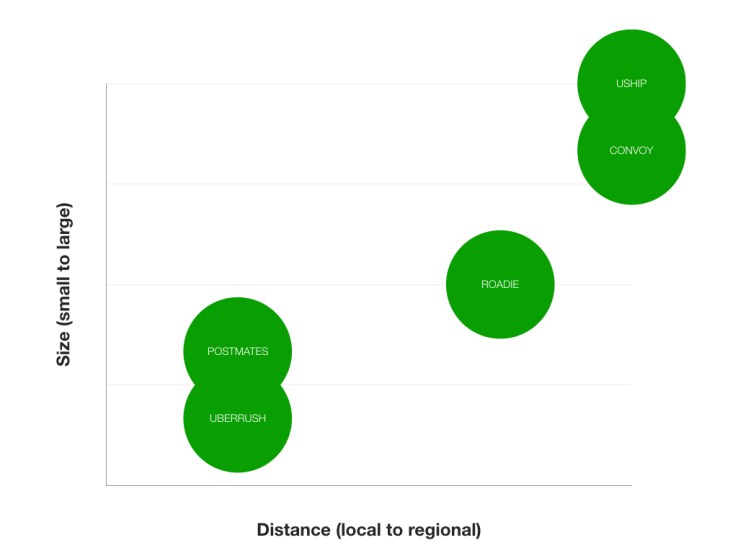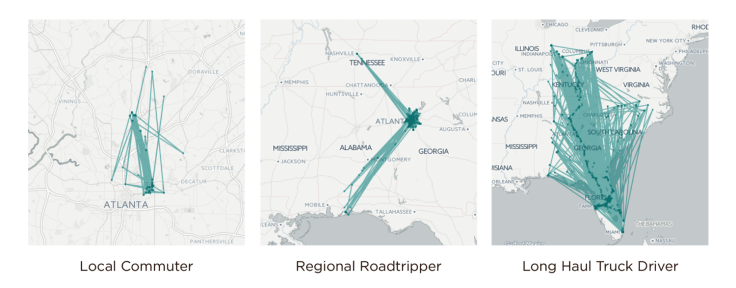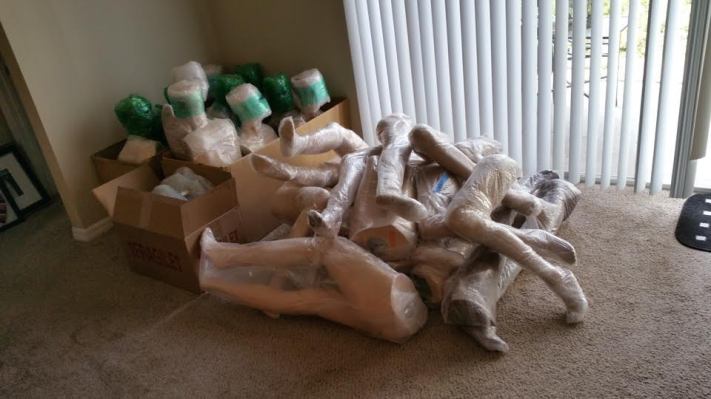When you want to transport an army of mannequins over a thousand miles, your options are pretty limited. You could walk into your local UPS or FedEx, but would have to deal with the soul piercing judgmental glare of packaging attendants. Beyond the aforementioned emotional embarrassment, it would also cost you an arm and a leg (no pun intended).
Today, Roadie is hauling in a new $15 million Series B with participation from Stephens Inc., the UPS Strategic Enterprise Fund, and TomorrowVentures to bolster analytics and increase market share of its “on-the-way” shipping model targeting unorthodox jobs.
The current on-demand logistics space is flooded with “UBER for X” concepts that fill various shipping needs. The diagram below is far from exhaustive, but displays nicely where Roadie falls into the crowded market.

Roadie will transport goods within urban areas, much like Postmates and UberRUSH, but it shines extra bright in the market for larger, longer distance projects.
Roadie also wants to do away with one of the most annoying parts of shipping: packaging. Combining its goals of simplicity and eco-friendliness, users of the service can ship without needing to box anything up. This is especially helpful for use-cases where a cubic box just isn’t feasible.
Yeah, the awkward army of mannequins, they actually did transport those over 1,300 miles from Riverview, FL to Appleton, WI.
Roadie, and its 22,000 drivers, aim to create a true point-to-point delivery service. They believe that they can reduce costs across the system by taking advantage of people’s natural travel patterns.
“The hub and spoke model used by companies like UPS and FedEx requires delivery density and utilization,” said Roadie CEO Marc Gorlin.
The team has been tracking preexisting travel routes that could be leveraged to carry goods for delivery.

“With companies like Uber, Lyft, Postmates, and DoorDash, someone comes from somewhere they weren’t already going and takes you somewhere they’re not already going,” added Gorlin
One early feature the company has implemented utilizing this data is Homeward Bound. The app will pull road-trip travel information and offer up a long distance transportation job that aligns with the trip home. Roadie aims to be able to take things like daily work commute into account and present users a way to generate extra cash by transporting goods along their regularly scheduled route.
The company has a verification process for new drivers that involves collecting insurance and evaluating ratings and reviews. It also uses badges to signify major driving accomplishments. One way that Roadie aims to differentiate itself from other sharing-economy transportation solutions is by letting users select their driver. For additional peace of mind, $500 worth of insurance comes standard on every shipment with an additional $10,000 available from UPS.
The partnership between UPS and Roadie is quite natural. Both companies are Atlanta based and investors from the UPS Strategic Enterprise Fund worked with Gorlin on his previous project as co-founder of fintech startup Kabbage.
The app already has 300,000 downloads and the team has plans to build partnerships with larger brands to bring additional volume. Gorlin believes he can double the size of his company over the next six months.
